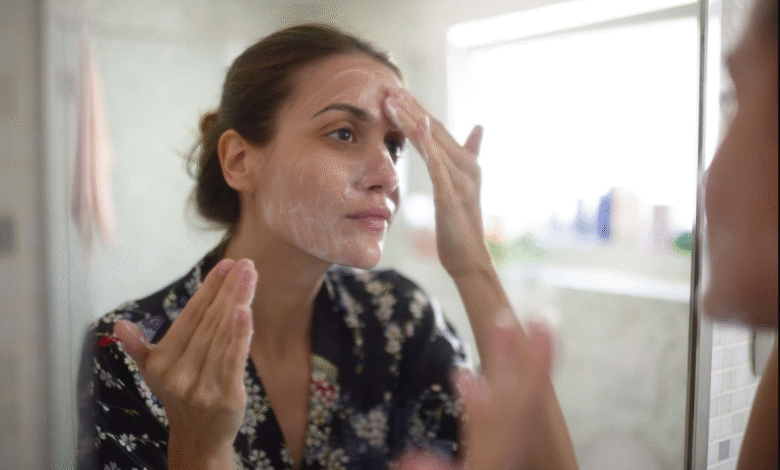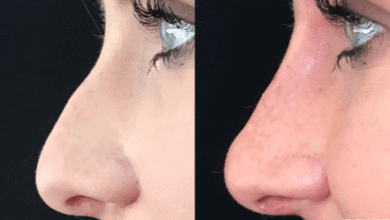Choosing the Right Skincare Routine for Healthy Skin

Understanding the Basics of Skin Health
Healthy skin reflects overall well-being and requires proper care and attention. Environmental factors, diet, stress, and lifestyle habits can significantly affect skin appearance and texture. Establishing a consistent routine using high-quality skin care products can help maintain a vibrant and youthful look while preventing common skin issues.
The Role of Cleansing in Skin Care
Cleansing is the first and most essential step in any skincare routine. Removing dirt, oil, and makeup prevents clogged pores and reduces the risk of breakouts.
Choosing a Gentle Cleanser
Using a gentle cleanser suited to your skin type is important. Harsh soaps or overly aggressive cleansers can strip the skin care products leading to dryness or irritation. Cleansers with natural ingredients are often preferred for their soothing properties.
Cleansing Frequency
Daily cleansing, usually twice a day, helps maintain a fresh and clean appearance. Over-cleansing can damage the skin barrier, so it’s crucial to balance the routine according to individual needs.
Exfoliation for Smooth and Radiant Skin
Exfoliation removes dead skin cells, promoting regeneration and revealing smoother skin. Regular exfoliation also enhances the effectiveness of other skin care products.
Types of Exfoliants
Chemical exfoliants containing alpha or beta hydroxy acids gently dissolve dead cells, while physical exfoliants use small granules to manually scrub the skin. Choosing the right type depends on skin sensitivity and texture.
Recommended Frequency
Exfoliating 1-3 times per week is generally sufficient. Over-exfoliating can lead to irritation, redness, or damage to the protective skin barrier.
Hydration and Moisturizing
Keeping the skin hydrated is essential for maintaining elasticity and preventing dryness. Moisturizers create a protective barrier that locks in hydration, enhancing skin health.
Selecting the Right Moisturizer
A lightweight moisturizer may be suitable for oily skin, while richer creams work better for dry or mature skin. Ingredients like hyaluronic acid, glycerin, and ceramides help retain moisture and support the skin barrier.
Timing and Application
Applying moisturizer immediately after cleansing and exfoliating ensures maximum absorption. Consistent use keeps the skin smooth, soft, and resilient.
See also: Understanding Sports Injuries: Prevention, Recovery, and Long-Term Health
Sun Protection and Anti-Aging Measures
Sun exposure is one of the leading causes of premature aging and skin damage. Incorporating sun protection into daily routines is crucial.
Using Sunscreen
Broad-spectrum sunscreens with SPF 30 or higher protect against harmful UVA and UVB rays. Even on cloudy days or when indoors, sunscreen helps prevent sun damage, pigmentation, and early signs of aging.
Additional Anti-Aging Practices
Antioxidant-rich products containing vitamin C, vitamin E, or green tea extract can reduce free radical damage. Regular use of these products in combination with sun protection slows the appearance of fine lines and wrinkles.
Targeted Treatments for Specific Skin Concerns
Different skin types and concerns require customized approaches. Targeted treatments help address issues like acne, hyperpigmentation, or sensitivity.
Acne Treatment
Products with salicylic acid, benzoyl peroxide, or tea tree oil effectively manage breakouts. Consistency and patience are important, as results may take several weeks to appear.
Brightening and Evening Skin Tone
Serums containing niacinamide or vitamin C can lighten dark spots, improve skin texture, and enhance radiance. Regular application ensures noticeable improvements over time.
Sensitive Skin Care
Fragrance-free and hypoallergenic formulations reduce the risk of irritation. Soothing ingredients like aloe vera, chamomile, or calendula calm the skin while providing hydration.
Integrating Skin Care Products Into Daily Life
A successful skincare routine requires consistency and adaptation to lifestyle changes.
Morning Routine
Morning routines typically include cleansing, moisturizing, and sun protection. Lightweight products are preferable to allow for comfortable makeup application.
Evening Routine
Evening routines focus on repair and hydration. Cleansing, treatment serums, and richer moisturizers support overnight skin regeneration.
Lifestyle Factors
Adequate sleep, balanced nutrition, stress management, and regular exercise complement the benefits of topical skin care products. Healthy habits contribute significantly to overall skin vitality.
Common Mistakes to Avoid
Even with high-quality skin care products, improper use can reduce effectiveness.
Overuse or Mixing Products
Using too many products simultaneously may irritate the skin. It’s better to introduce new products gradually and follow manufacturer recommendations.
Ignoring Individual Skin Needs
Each skin type is unique. Products suitable for one person may not work for another. Understanding skin type and specific concerns ensures better outcomes.
Neglecting Seasonal Changes
Skin requirements change with seasons. Adjusting the routine to address weather-related effects, such as increased dryness in winter or oiliness in summer, helps maintain balance.
Conclusion
Maintaining healthy and radiant skin is achievable through consistent care and the use of appropriate skin care products. Cleansing, exfoliating, moisturizing, sun protection, and targeted treatments form the foundation of an effective skincare routine. Coupled with healthy lifestyle habits, these practices ensure long-term skin vitality and help prevent common concerns such as dryness, pigmentation, and premature aging. Choosing products thoughtfully and applying them correctly makes a significant difference in achieving smooth, glowing, and resilient skin.




